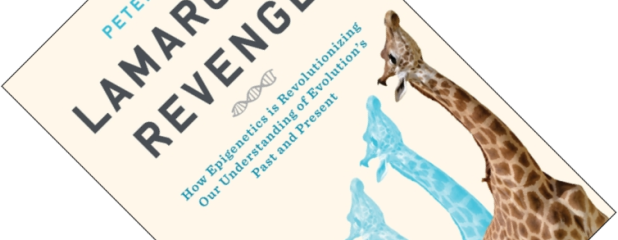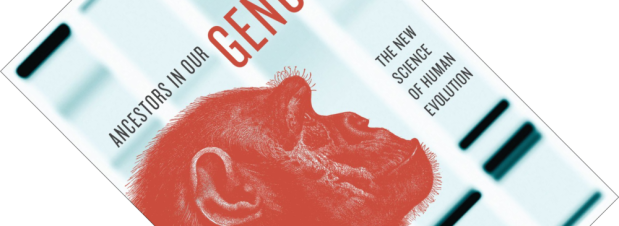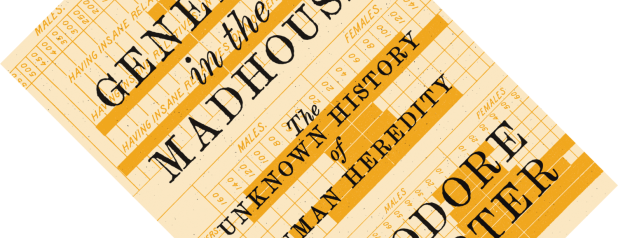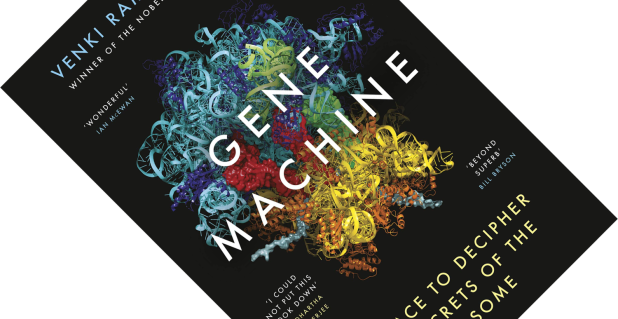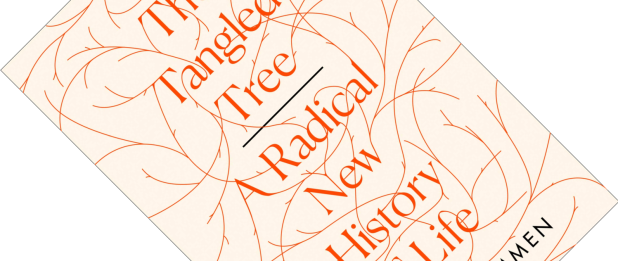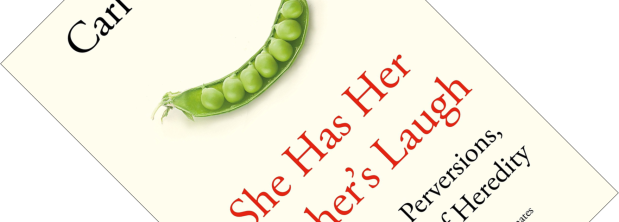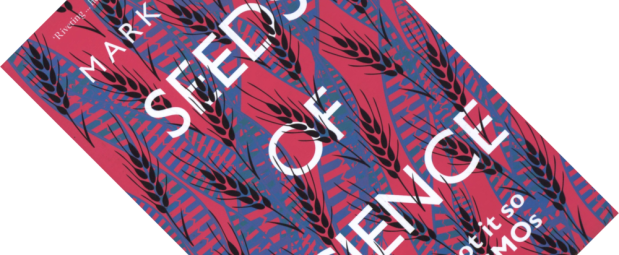As one of several intellectuals who wrote about evolution before Darwin, time has not been kind to the French naturalist Jean-Baptiste Lamarck (1744-1829). Reviled during his lifetime by the influential Cuvier, after his death he became best remembered, and ultimately ridiculed, for the idea that characters acquired during an organism’s lifetime are passed on to its offspring. With the rise of the modern field of epigenetics, some of his ideas are making a comeback, albeit modified and adapted for the 21st Century. Palaeontologist and astrobiologist Peter Ward would even like to go so far as to restore some honour to his name and consider epigenetics a neo-Lamarckian process.
genetics
Book review – Ancestors in Our Genome: The New Science of Human Evolution
After I read and reviewed Who We Are and How We Got Here: Ancient DNA and the New Science of the Human Past, I thought I knew about the changes to the story of human evolution based on studies of DNA. And given that Ancestors in Our Genome was published a few years before that book, I was curious what it could add to what I had been reading so far. As it turns out, a lot. As with my previous review, I should preface this one with the same warning that things are about to get complicated…
Book review – Blueprint: How DNA Makes Us Who We Are
When I opened this book and read its sales pitch (I paraphrase: “What if I told you of a new fortune-telling device that can predict psychological traits – it’s called the DNA revolution!”) I raised my inquisitive but sceptical eyebrow somewhat. Did I just pick up another piece of pop-psychology pulp? Oh boy, was I wrong! Behavioural geneticist Robert Plomin has written an incredibly interesting book with Blueprint, explaining how rapid advances in DNA sequencing technology are opening vast new vistas on the genetics underlying psychology. And is it ever so different, and more complex, than what hyped-up newspaper headlines have tried to sell us so far.
Book review – Genetics in the Madhouse: The Unknown History of Human Heredity
Ask most biologists about the history of genetics and they will likely mention Watson and Crick’s 1953 discovery of the double helix structure of DNA or the work of the monk Gregor Mendel that showed a simple form of trait inheritance. Professor of History Theodore M. Porter contends that there is another, largely forgotten side to this story. Long before words such as genetics and genes had been coined, the fledgeling discipline of psychiatry was recording details of patients in mental asylums, collecting vast amounts of data on human heredity. Genetics in the Madhouse is a deep dive into the archives to reveal this little-known history.
Book review – Tomorrow’s Table: Organic Farming, Genetics, and the Future of Food (Second Edition)
Aaah, GMOs. Was there ever a topic comparable to genetically modified organisms that riled people on either side of the debate this much? Written by an organic farmer and plant geneticist, Tomorrow’s Table is a marvellous work that walks the middle road, asking: Why should we not combine the best that organic farming and genetic engineering have to offer? Along the way, it exposes the often illogical, contradictory and, frankly, infuriating attitudes and opinions of the anti-GMO movement, politely smothering them with facts, while also teaching the technology cheerleaders a lesson or two. I love this book.
Book review – Gene Machine: The Race to Decipher the Secrets of the Ribosome
DNA has lodged itself in the public imagination as the “blueprint” of life and as other, often slightly deceiving, metaphors. But what happens next? How do organisms actually get anything done with the information coded in DNA? For biologists, this is standard textbook fare: DNA is copied into single-stranded RNA which is then translated, three letters at a time, into amino acids that, when strung together, make up the workhorses of the cell: proteins. The cell organ, or organelle, that does the latter part is the ribosome, which Venki Ramakrishnan introduces here in Gene Machine. He has written a riveting first-hand account of the academic race to describe its structure, and how, in the process, he bagged a shared Nobel Prize in Chemistry in 2009.
Book review – The Tangled Tree: A Radical New History of Life
After I recently finished Carl Zimmer’s new book She Has Her Mother’s Laugh: The Powers, Perversions, and Potential of Heredity, I noticed there was one mechanism of heredity he mentioned only ever so briefly: horizontal gene transfer. Since it does not play a large role in humans, it is understandable he left it aside. And doing it justice would have required almost another book. Luckily, science writer David Quammen is here to give us that book.
Book review – She Has Her Mother’s Laugh: The Powers, Perversions, and Potential of Heredity
If Charles Darwin were to walk into my office today and ask me: “So, what did I miss?” I think I would sit the good man down with a copy of She Has Her Mother’s Laugh, telling him: “Here, this should get you up to speed”. Darwin struggled to explain how traits were being inherited from generation to generation. As New York Times columnist Carl Zimmer shows in this wide-ranging book, the story of heredity has turned out to be both diverse and wonderful, but has also been misappropriated to prop up some horrible ideologies.
Book review – Who We Are and How We Got Here: Ancient DNA and the New Science of the Human Past
You may have missed it, but archaeology is undergoing a silent revolution. The story of our deep history used to be based on skeletal remains, linguistics, and the analysis of objects and tools our ancestors left behind, but since about three years archaeologists have a new tool in their arsenal. The analysis of DNA from old bones, or ancient DNA. David Reich has been at the forefront of developing this technique and argues that it is rewriting most of what we thought we knew about the last 350,000 years or so of human history. Brace yourself, things are about to get complicated…
Book review – Seeds of Science: Why We Got It So Wrong On GMOs
As a biologist, the opposition to genetically modified organisms (GMOs) both baffles and vexes me. Spurious claims are being bandied about by people and organisations who seemingly haven’t a clue about genetics, and there has been a long-running campaign of fearmongering by large conservation bodies, notably Greenpeace. Like the “debate” around climate change or creationism, the dialogue has become toxic and polarised, and anyone who does not oppose is likely to be called a “Monsanto shill”. As this is first and foremost a book review though, I will try to keep my personal views on this issue aside for another time. This book, then, has a very interesting premise. A book arguing why we got it wrong on GMOs, written by a former anti-GMO activist.

